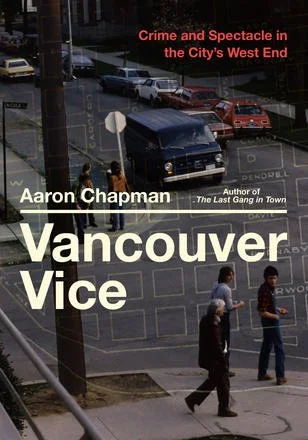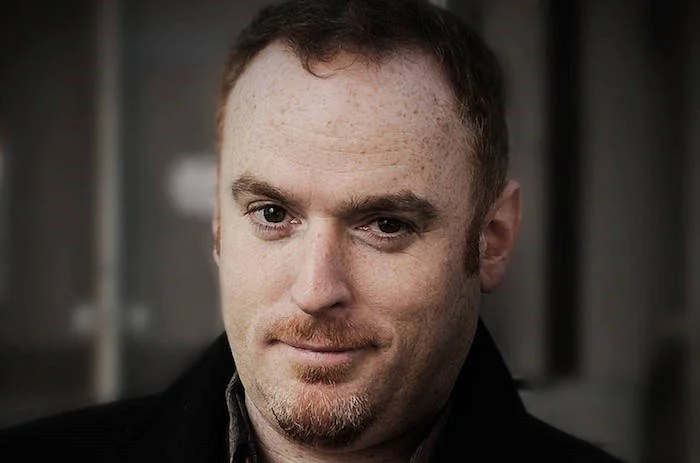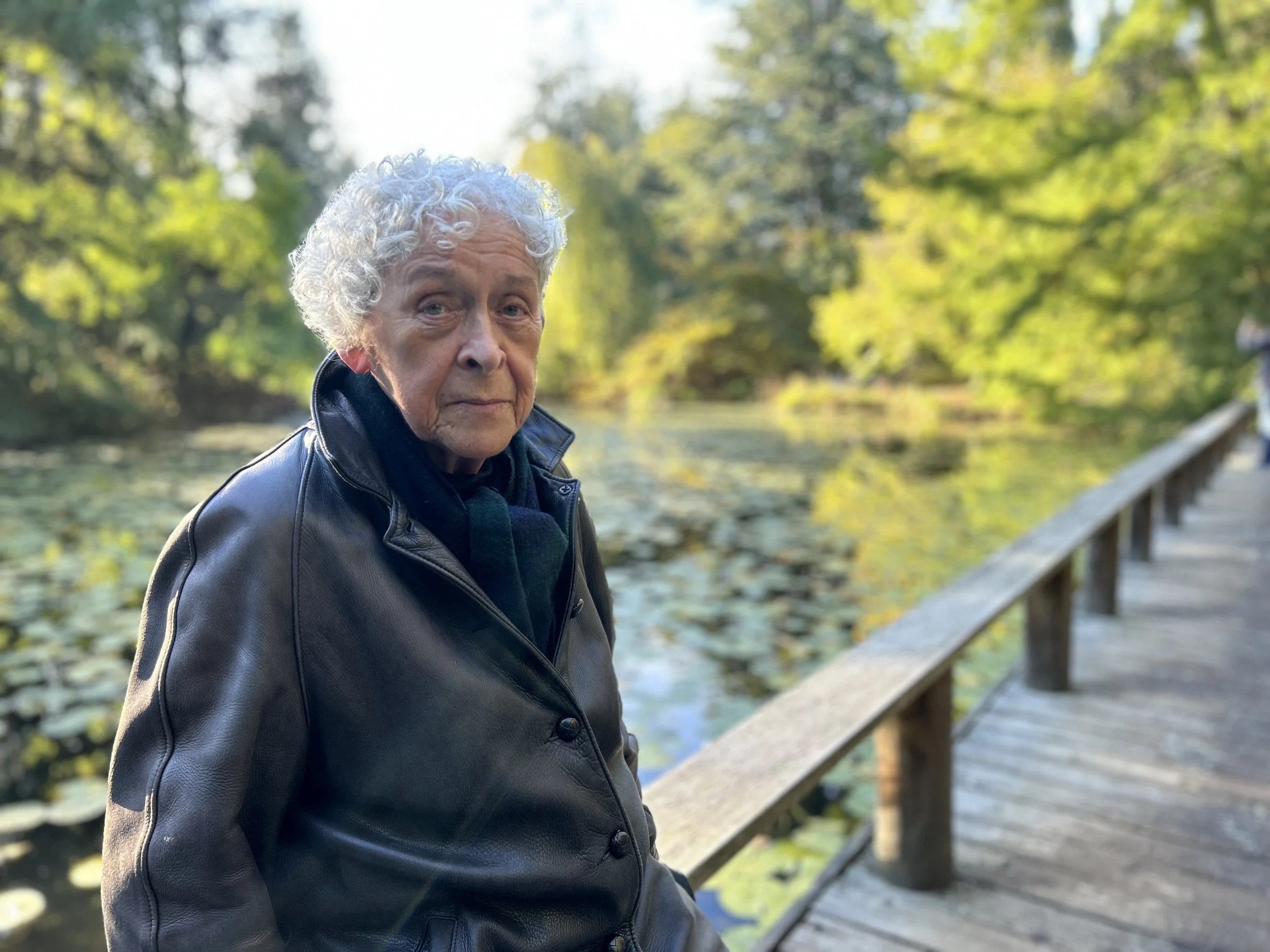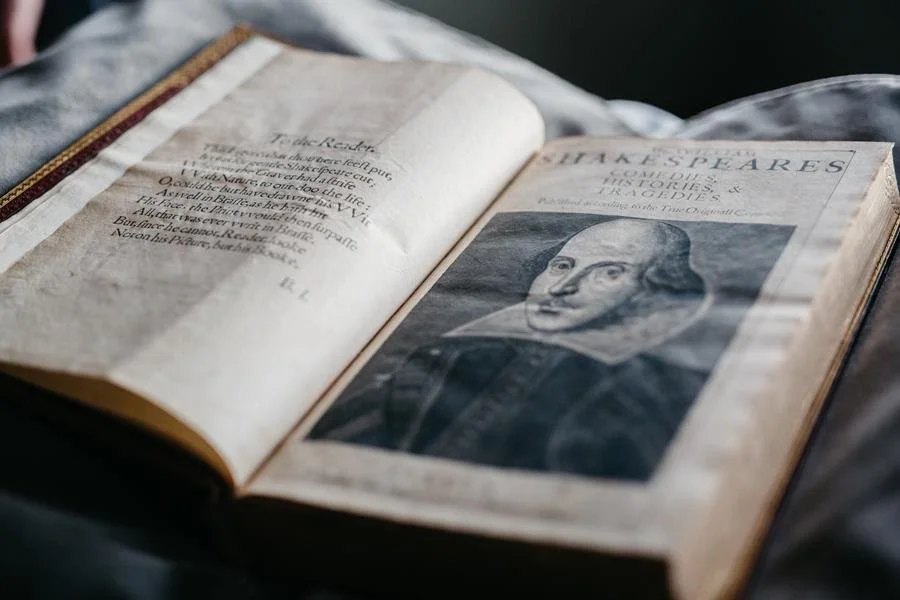Stir Q&A: Local author, historian, and musician Aaron Chapman on his new book, Vancouver Vice
Diving deep into the West End of the 1970s and 80s, the read is part murder mystery, part investigative profile
Aaron Chapman. Photo by Rebecca Blissett
Aaron Chapman’s book launch for Vancouver Vice: Crime and Spectacle in the City’s West End takes place December 9 at 7 pm at the Penthouse Nightclub. Admission is free. Books will be available for purchase via Book Warehouse.
THE WEST END today might not be without its problems, but go back a few decades and things were far more volatile. In the late 1970s and early ’80s, the neighbourhood was home to an open and thriving sex trade that often led to aggressive conflicts between sex workers, johns, clients, protestors, and residents. The rate of burglaries, auto thefts, sexual offences, and assaults, including those on police officers, was going up. And the discovery of a body in the trunk of a car in Stanley Park in 1984 shook and shocked the entire city.
Local author, historian, and musician Aaron Chapman delves into the lesser-known past of the beloved neighbourhood in his new book, Vancouver Vice: Crime and Spectacle in the City’s West End (Arsenal Pulp Press). It’s the fifth release for Chapman, who also wrote 2019’s Vancouver after Dark: The Wild History of a City’s Nightlife; Liquor, Lust, and the Law: The Story of Vancouver's Legendary Penthouse (2017); 2016’s The Last Gang in Town: The Epic Story of the Vancouver Police vs. the Clark Park Gang; and Live at the Commodore: The Story of Vancouver's Historic Commodore Ballroom (2014).
Stir caught up with Chapman to hear about how and why his latest came to be, as well as what else he’s up to these days.
You're a member of the Royal Historical Society; what is it about history in general, and Vancouver’s past in particular, that attracts you?
It’s often said by cynics that since Vancouver is comparatively such a young city, we have no history here. I’ve always vehemently disagreed with that. That sentiment, of course, ignores thousands of years of Indigenous history to this area, but when it comes to the urban history of where we live, what’s fascinating about it is that Vancouver has changed so quickly and dramatically, especially over the last 50 years. And we have been here to see much of it change for ourselves—for better and worse—within our own lifetimes. Some of these same people often say that because Vancouver has torn down and paved over so much of its past, that people here don’t appreciate Vancouver’s history—and I don’t think that’s true either. While we might not have had the proper heritage by-laws in place to protect our past, or help us not forget it, people have never been more interested in Vancouver’s past. Maybe we’re just trying to remember it all before it disappears? But just look at the litany of new books and documentaries on the past of the city that have come out in the last many years—there has been a tremendous blossoming of interest in the subject. So it all makes for a fascinating time to be a part of that, and write about it too.
Did you know when you were writing Vancouver After Dark, or any of your other titles for that matter, that Vancouver Vice was just waiting to be written?
I think after writing The Last Gang in Town, I thought it would be interesting to view another neighbourhood through the lens of some of its crime history. And I started researching what would become this book just prior to working on Vancouver After Dark. It came together as I began interviewing some retired police who had never spoken before about what they were witness to in those years, as well as interviewing some of the older gay residents of the West End who remembered what the neighbourhood was like then. This was decades before rainbow crosswalks and the acceptance that the community largely has now, and when many of the gay nightclubs and bathhouses were a little more clandestine. But what really cemented the idea in my mind was walking around the West End and Davie Street was that, if you’ve just moved to Vancouver, or perhaps even if you’ve lived here for twenty years, you might have no idea at all that the West End and perhaps the city itself was as turbulent as it was then. This period of history in the city seems to be unknown or unheard of to so many now. And even to those who lived here at the time, they may not have known the whole picture, or been aware of some secrets of what made up the West End underworld. It seems strange to even call it that when one walks around the West End today, but it was a different place then.
What shocked you in researching and writing the book?
There were things that shocked me throughout the whole story that follows a police investigation in this period when they find a body in the trunk of a car abandoned in Stanley Park in May of 1984. Who that person was, and who he connected to makes up one part of the story. It was a wild time in the city—maybe the most shocking years Vancouver has ever seen—all before things changed before Expo 86. A crime wave spiked. There were more murders in the west end in 1982 than there were in the Downtown Eastside. It’s interesting, though, in those years, a Trudeau was in office, many Vancouverites were complaining that the city had lots control of its neighbourhoods, and there was a strange new virus that had emerged that there was initially a lot of misinformation and fear about. It’s reductive to make some of those comparisons here—but in a way perhaps the more times change the more they stay the same.
Who is the book for?
I think for those who lived in Vancouver through the late 1970s and early ’80s it may confirm some suspicions, and completely shake up some preconceptions they might have as well. For younger people, or those who are new to Vancouver who may have moved here in more recent years—I think they’ll be surprised just how wild these years in Vancouver were. Too many in this chapter of the city’s history passed on before their time—unable to tell their own story. Many have seemed to have vanished from memory; others will never be forgotten. There are some notorious people in Vancouver Vice, and I hope the city today will find them as interesting as I did.
Besides writing like crazy during the pandemic, how did you handle the era of isolation?
I was told by a friend that I’d make an ideal prisoner—that I seemed fine with the isolation! They were being silly, [but] I was quite content during the pandemic to work. If you want to write a book, boy, having a pandemic which keeps you home is even better than cutting your TV service in terms of getting rid of distractions. But the period aided some of the research unexpectedly. If I was looking to interview somebody, just about everyone was home. Nobody was on holiday—no secretaries told me their boss was “not available”! Just about everybody was easy to find and free to talk, and I managed to track down everyone from a former Attorney General of B.C., to old vice squad police, to street hustlers who once plied their trade off Davie Street who told their stories. So it felt, in a way, the stars lined up the right way for me to be able to write this book at this time.
What else are you up to these days, aside from promoting your new book, in terms of your music and other projects?
Well, I’m glad to be so busy right now. In addition to the book coming out, I’m in the new English language dub of Hayao Miyazaki anime Future Boy Conan that’s just been released, where I voice the character of Captain Dyce. He was great fun to play—he belly-laughs and shouts a lot, so it was remarkably great stress relief during the pandemic to go down to the studio a couple of times a week and bark and yell into a microphone. The series is considered a real landmark work in anime, so I’m very honoured to have taken part in it. I’m also working on remaking an old radio series from the early 1950s, and sketching out some plans for another book that will be a bit more focused in the UK—but that’s a couple of years away. I admit took a little bit of a step back as a touring musician in the last couple of years as I got busy with book related work, but the pendulum is swinging back the other way, and in addition to sitting in with the Hard Rock Miners around town, I’m looking to do some stuff of my own again too. I suppose that sounds like a lot is going on, but there’s still a good part of my day sitting in a chair staring off into nowhere in particular thinking about how and what to do next.
For more information about Vancouver Vice, see Arsenal Pulp Press.













